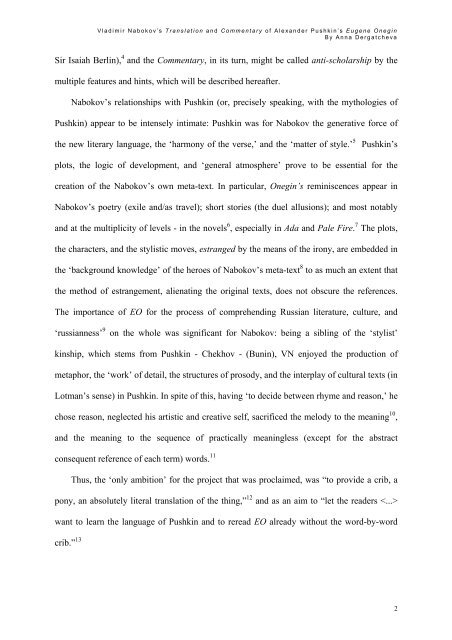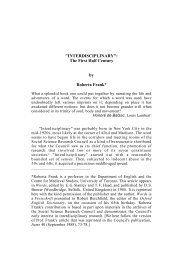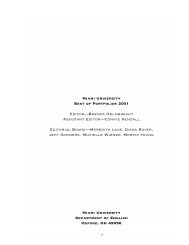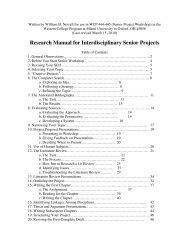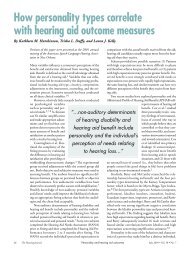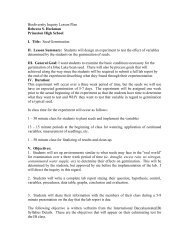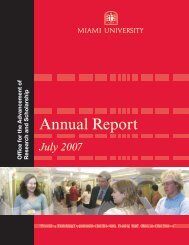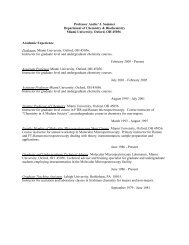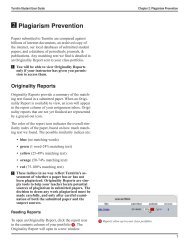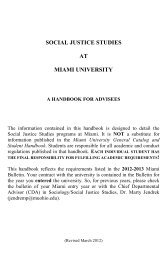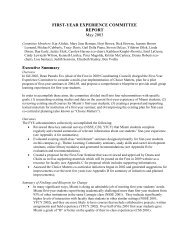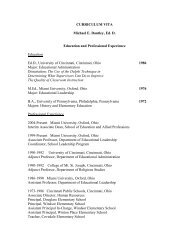Nabokov as Translator - units.muohio.edu
Nabokov as Translator - units.muohio.edu
Nabokov as Translator - units.muohio.edu
You also want an ePaper? Increase the reach of your titles
YUMPU automatically turns print PDFs into web optimized ePapers that Google loves.
Vladimir <strong>Nabokov</strong>’s Translation and Commentary of Alexander Pushkin’s Eugene Onegin<br />
By Anna Dergatcheva<br />
Sir Isaiah Berlin), 4 and the Commentary, in its turn, might be called anti-scholarship by the<br />
multiple features and hints, which will be described hereafter.<br />
<strong>Nabokov</strong>’s relationships with Pushkin (or, precisely speaking, with the mythologies of<br />
Pushkin) appear to be intensely intimate: Pushkin w<strong>as</strong> for <strong>Nabokov</strong> the generative force of<br />
the new literary language, the ‘harmony of the verse,’ and the ‘matter of style.’ 5 Pushkin’s<br />
plots, the logic of development, and ‘general atmosphere’ prove to be essential for the<br />
creation of the <strong>Nabokov</strong>’s own meta-text. In particular, Onegin’s reminiscences appear in<br />
<strong>Nabokov</strong>’s poetry (exile and/<strong>as</strong> travel); short stories (the duel allusions); and most notably<br />
and at the multiplicity of levels - in the novels 6 , especially in Ada and Pale Fire. 7 The plots,<br />
the characters, and the stylistic moves, estranged by the means of the irony, are embedded in<br />
the ‘background knowledge’ of the heroes of <strong>Nabokov</strong>’s meta-text 8 to <strong>as</strong> much an extent that<br />
the method of estrangement, alienating the original texts, does not obscure the references.<br />
The importance of EO for the process of comprehending Russian literature, culture, and<br />
‘russianness’ 9 on the whole w<strong>as</strong> significant for <strong>Nabokov</strong>: being a sibling of the ‘stylist’<br />
kinship, which stems from Pushkin - Chekhov - (Bunin), VN enjoyed the production of<br />
metaphor, the ‘work’ of detail, the structures of prosody, and the interplay of cultural texts (in<br />
Lotman’s sense) in Pushkin. In spite of this, having ‘to decide between rhyme and re<strong>as</strong>on,’ he<br />
chose re<strong>as</strong>on, neglected his artistic and creative self, sacrificed the melody to the meaning 10 ,<br />
and the meaning to the sequence of practically meaningless (except for the abstract<br />
consequent reference of each term) words. 11<br />
Thus, the ‘only ambition’ for the project that w<strong>as</strong> proclaimed, w<strong>as</strong> “to provide a crib, a<br />
pony, an absolutely literal translation of the thing,” 12 and <strong>as</strong> an aim to “let the readers <br />
want to learn the language of Pushkin and to reread EO already without the word-by-word<br />
crib.” 13<br />
2


